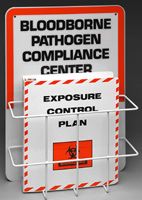June 11, 1991
Mr. Ronald Ray
Assistant Secretary for Human Resources
and Administration Department of Veterans Affairs
Room 1175
810 Vermont Avenue, N.W.
Washington, D.C. 20420
Dear Mr. Ray:
This is in response to your letter of November 27, 1990 to Mr. John E. Plummer, Director, Office of Federal Agency Programs, concerning the Occupational Safety and Health Administration (OSHA) standard, 29 CFR 1910.1200, the Hazard Communication Standard (HCS) and its application to employees who prepare and administer drugs/medications. Please accept our apology for the delay in response.
- Question - "In what ways does the HCS apply to hospital employees who mix and/or repackage drugs/medications, for dispensing to patients? For example, Tylenol may be dissolved or crushed by one employee for administration by another. Paragraph (b)(6)(viii) of the HCS does not define "final form;" it is therefore unclear whether or not the paragraph applies to tablets or pills which have been dissolved or crushed."
Response - Tablets or pills which are designed to be dissolved or crushed by employees prior to administration to a patient are not in "final form", and are covered by the HCS. There may be situations (such as the Tylenol example) where a tablet or pill is dissolved or crushed for purposes of administration when that is not generally the way it is dispensed. The final form exemption would apply in this situation.
- Question - "Similarly, to what extent does the HCS apply to drugs and medicines in liquid form (e.g., alcohol, Betadine) which are diluted and/or repackaged before administration or application?"
Response - Liquid drugs which are hazardous chemicals would be covered if there is a potential for employee exposure to them.
- Question - "What are the requirements to obtain Material Safety Data Sheets from manufacturers on drugs/medications and other products which are not received by a hospital in final form?"
Response - Manufacturers and distributors of hazardous chemicals (including drugs/medications that are not otherwise exempted from the rule) are required to provide a Material Safety Data Sheet (MSDS) with the first shipment to downstream employers (including hospitals), and with the first shipment after the MSDS is updated. Employers must have MSDSs for each hazardous chemical in the workplace to which employees are exposed. If one is not received with the shipment, the employer must obtain one.
- Question - "To what extent are employees who administer a unit dose of a drug/medication, prepared by an in-house pharmacy, covered by the HCS?"
Response - The frequency of exposure to the drugs has no impact on coverage.
- Question - "To what extent does the frequency with which ointments, alcohol, or other similar items are used by an employee on patients impact on how that employee is covered under the HCS?"
Response - The frequency of exposure does not effect the application of the HCS. Coverage under the HCS for ointments, alcohol and other similar items is not determined by the frequency of employee exposure. The employer is required to comply with the MSDS and training requirements in the HCS for any ointment, alcohol, or similar medication in liquid form that the manufacturer has found to be hazardous (as defined in the HCS).
OSHA included a discussion of the coverage of pharmaceuticals in the preamble to the August 8, 1988 notice of proposed rulemaking (NPRM) which was published in the Federal Register. A copy of this document, with the discussion marked, is enclosed for your use.
We hope this information will be helpful to you.
Sincerely,
Patricia K. Clark
Director
Directorate of Compliance Programs
Enclosure
November 27, 1990
Mr. John Plummer
Director
Office of Federal Agency Programs
Occupational Safety and Health Administration
U.S. Department of Labor
200 Constitution Avenue, N.W.
Washington, D.C. 20210
Dear Mr. Plummer:
The Department of Veterans Affairs (VA) would like your assistance in clarifying the Hazard Communication Standard (HCS), 29 Code of Federal Regulations 1910.1200 with regard to drugs/medications.
Specifically, we would like information regarding the following:
- In what ways does the HCS apply to hospital employees who mix and/or repackage drugs/medications, for dispensing to patients? For example, Tylenol may be dissolved or crushed by one employee for administration by another. Paragraph (b)(6)(viii) of the HCS does not define "final form;" it is therefore unclear whether or not the paragraph applies to tablets or pills which have been dissolved or crushed.
- Similarly, to what extent does the HCS apply to drugs and medicines in liquid form (e.g., alcohol, Betadine) which are diluted and/or repackaged before administration or application?
- What are the requirements to obtain Material Safety Data Sheets from manufacturers on drugs/medications and other products which are not received by a hospital in final form?
- To what extent are employees who administer a unit dose of a drug/medication, prepared by an in-house pharmacy, covered by the HCS?
- To what extent does the frequency with which ointments, alcohol, or other similar items are used by an employee on patients impact on how that employee is covered under the HCS?
| 
Get your bloodborne pathogen training materials at Safety Emporium. |
Your assistance in this matter is appreciated. I have asked Frank Denny, Office of Occupational Safety and Health, who can be reached at 233-4180/4182, to provide any additional information you may require.
Sincerely yours,
Ronald E. Ray
Designated Agency Safety and Health Official






